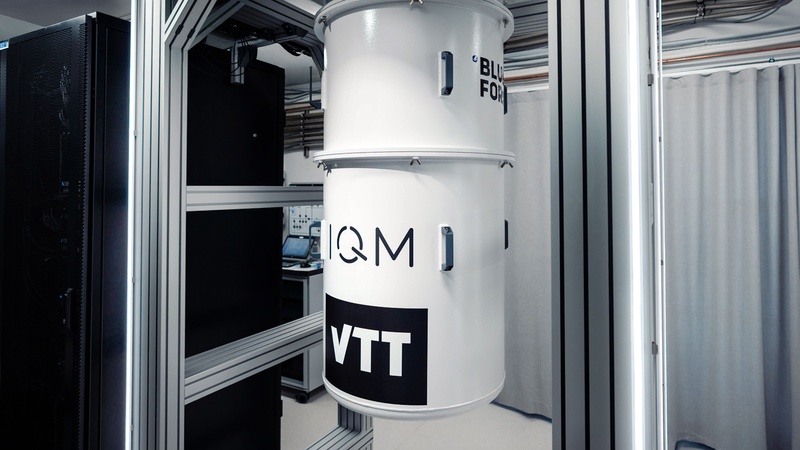In the culmination of a four-year joint-development project, Finland has launched Europe’s first 50-qubit quantum computer.
Finnish company IQM Quantum Computers partnered with VTT Technical Research Centre of Finland to develop the superconducting quantum computer.
Located at VTT’s Micronova premises in the city of Espoo, the computer can now be used by companies and researchers who want to make use of its computing capabilities.
While the field of quantum computing technology is still in its infancy, scientists believe that with its ability to solve problems that are unsolvable on classic computers, the technology could help power innovation in a range of fields, from drug discovery and smarter encryption software to manufacturing and AI.
Erja Turunen, executive vice-president at VTT, said: “Developing and building a 50-qubit quantum computer demonstrates that Finland is one of the global leaders in the field.
“With this quantum computer, we can develop applications and new algorithms for material modelling and simulation, optimisation problems, and artificial intelligence.”
While scientists across the globe are researching quantum computing, developing robust systems is proving to be very challenging. Quantum computers are extremely sensitive to system imperfections. As such, researchers are experimenting with different platforms to reduce these imperfections. Some examples of quantum computing platforms under investigation include superconducting qubits or trapped ions.
The approach the VTT and IQM partnership has taken is superconducting qubits and was developed over three phases. In 2021, with €20.7m backing from the Finnish government, the five-qubit quantum computer was completed and connected to the internet via the Finnish IT Centre for Science’s Lumi supercomputer.
The 20-qubit computer was completed in 2023, and has now been upgraded to 50-qubit.
According to VTT, thanks to new chip technology, it has been possible to significantly reduce computer noise and increase the number of qubits used in calculations.
Jan Goetz, co-CEO and co-founder of IQM Quantum Computers, said: “The delivery of this quantum computer is a significant milestone in our technology roadmap towards large-scale quantum computing with applications in quantum machine learning, optimisation or simulations.
“Our collaboration with VTT to develop the 50-qubit system serves as a baseline for our IQM Radiance 54-qubit quantum computer, a product we are shipping to our customers worldwide. We are now at full speed to deliver on the growing demand for our quantum computers to drive scientific breakthroughs and ultimately reach quantum advantage.”
As well as quantum computers, the race to develop quantum computing chips is on. IBM launched the IBM Heron quantum chip over a year ago, and in December 2024 Google launched its 105-qubit, which it claims demonstrates “state-of-the-art performance across a number of metrics”.
In February 2025, Microsoft launched its new Majorana 1 chip, which it claims offers a “breakthrough in quantum computing”.
